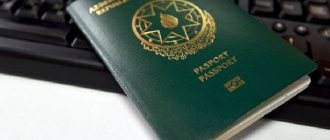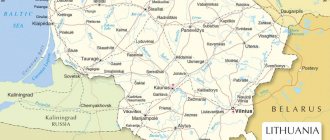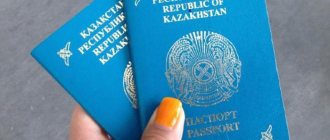For each country, the main wealth is its citizens - individuals who have a special connection with the state. In international practice, there are several ways to establish such a connection; one of the most non-standard ones is option. Understanding the features of this procedure and cases of its application is extremely important for residents of regions that change jurisdiction and become part of another country. In this article we will look at what an option is and to whom it can be applied.
How to obtain Russian citizenship
The presence of citizenship - a stable legal connection between a person and the state - creates certain relations between them, which are expressed in the presence of mutual rights and obligations. The main issues relating to the regulation of these relations are regulated by Federal Law No. 62-FZ dated May 31, 2002.
This law defines the following possible ways to obtain a Russian passport:
- Acquisition of citizenship as a result of option.
- Right of “blood” (birth from Russian parents).
- The right of “soil” (birth on the territory of the Russian Federation).
- Naturalization (also called admission to citizenship) - consists of fulfilling the conditions required by law to obtain the status of a citizen (residence in the territory for a certain time, knowledge of the language and laws, having a job or certain qualifications, and so on).
- Restoration of citizenship - can be applied to persons who have previously voluntarily severed their connection with the Russian state.
Each of the above reasons has its own characteristics, which are beyond the scope of our article. Particular emphasis will be placed on the option procedure itself.
What is an option
Acquiring citizenship in a new country is usually called an option, which is translated from Latin as “desire” or “choice.” Citizens residing in one territory but having citizenship of another can acquire a similar status, taking into account that the state provides for such a possibility. Recently, this does not happen often, and people who want to change their place of residence have to look for other ways to obtain another citizenship. According to reviews from clients of the migration company Aristipp, obtaining citizenship in Europe is now easier, thanks to the simplified program provided in Bulgaria and Romania.
There are various ways to acquire citizenship in a new country:
- The citizen was born in a given country;
- Through reintegration or recovery;
- By naturalization or acquisition.
In the Russian Federation, any foreign citizen who wishes can acquire citizenship. He is given a certain period of time for this so that he can finally make a decision. If a citizen has finally decided to obtain citizenship in Russia, he must remember that he will have to live on the territory of this country or in a republic with which Russia has signed an agreement.
Do not confuse the concepts of “Option” and “Acquisition of citizenship”; these are two different concepts that should be distinguished. Option is a mandatory choice of every person who must decide in which territory he is going to live.
The need for an option may arise in the following cases:
- The emergence of a new country resulting from the division of an existing one. In this case, a citizen of a divided country has the right to choose in which territory he wants to live.
- The split of the republic into several states.
- The union of part of a state with another republic. A good example can be given with the Autonomous Republic of Crimea, which recently joined Russia.
People's rights
The legislative act states that not only citizens who have passed the option, but also their children can exercise the right to obtain citizenship. That is, if, when one country splits into several or in other similar situations, citizens decide to change their place of residence to a new one, then the children of these citizens have the right to become citizens of this country.
Incapacitated persons can also exercise this right. If a person changes his citizenship and place of permanent residence, he still retains property rights. If a citizen had any real estate on the territory of the state in which he lived, he still remains its owner, even if he now lives in another territory.
Option concept
Before talking directly about the procedure, it is worth defining the phenomenon in question. The choice of citizenship when changing the borders of states is called an option.
This procedure can also be applied in cases where, due to the peculiarities of the legal systems of different states, a situation has arisen in which one person has two passports from different countries and he is obliged to make a choice in favor of one.
But most often this happens in the case of the transfer of a certain territory from the jurisdiction of one state to another country. This method is based on the voluntary choice of a person, thus, an option is the acquisition of citizenship made on the basis of a conscious decision of a person who chose to associate himself with a specific country.
As a result of such an action, a person can choose: either he remains in his old citizenship or receives a new one, or, if such a situation is permissible by law, applies for a dual one.
The distinctive features of the option are, firstly, that it is applied both en masse and individually (for example, upon marriage), and secondly, the option is a way of changing citizenship, based on a voluntary choice from several available options .
When does the option apply?
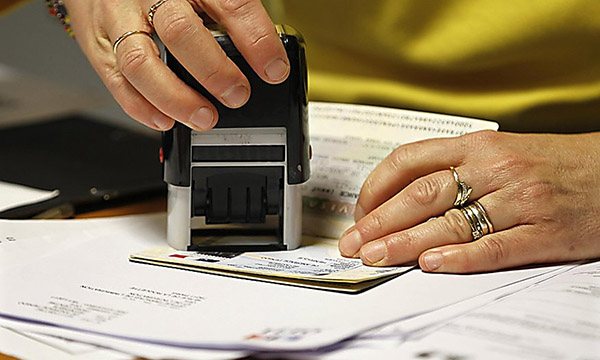
The most common case of an option in world practice is a change of jurisdiction from one state to another in a certain territory. In this situation, much depends on the agreement between the countries or on the decision of the international competent body (for example, the UN decision on the creation of the State of Israel). Such a document usually formulates provisions on the basis of which citizenship will be determined for people living in such a territory.
Reasons for the option:
- The transition of part of the territory from one country to another and the subsequent change of borders.
- The creation of a new state due to the separation of part of it.
- In the event of the formation of a new state (as a result of the collapse of a previously existing one), obtaining a new citizenship can occur automatically. Thus, an automatic change of citizenship is the establishment of a legal connection between a person and the state, in which, due to a number of political and legal reasons, a person is assigned the citizenship of a certain country and the person is not able to associate himself with another state entity.
In the twentieth century, in the history of which there were two world wars and the disappearance of the so-called “socialist camp” of countries, many examples of option can be given: for example, when Bukovina was transferred from Romania and Transcarpathia from Czechoslovakia to the USSR, people living in these territories were given the opportunity to choose , in which country they wish to remain a citizen.
Rights of residents during option
As already mentioned, the right to choose the citizenship of a person living in a territory whose jurisdiction changes from one state to another is inviolable (of course, if the country continues to exist). This is a mandatory condition enshrined in the norms of international law, and its non-compliance leads to the fact that the entire procedure may be considered illegal at the interstate level and its results will not be recognized by the international community.
In addition to the fact that a person has the right to choose a citizenship different from what he already had, he also has the right to retain his previous indigenous status, if the state has not ceased to exist and this is consistent with the norms of national legislation.
However, it must be remembered that the choice, whatever it is, will necessarily have legal consequences: for example, a person who does not want to change citizenship may have to change his place of residence and go to a country whose jurisdiction over a certain territory has been lost.
In addition, the norms of international law protect people’s property: no matter what status a person finds himself in and no matter where he remains to live, he does not lose the right of ownership of his property, including real estate.
Who cannot exercise the right to option
The option procedure applies only to those who live in the specific territory where the jurisdiction is changing. This means that only those who are registered in a given territory can obtain a new civil status by option; this provision does not apply to all others living there at this time.
Sometimes citizenship is automatically assigned to all those registered in a certain territory, and a change in status can only affect representatives of certain nationalities, and so on.
In addition, in each specific case, the specifics may be regulated by an agreement between states.
Option cases
There are several cases when an option is necessary:
- The emergence of a new country through separation from an existing one. This refers to the separation of a part of the state and assigning it the status of a separate republic. In this case, the population of the “old” state has the right to choose on the territory of which country or republic they want to live: on the “old” or “separated” one. If a person chooses the option of living in an already separated part of the country, then he falls under the process and takes citizenship of the newly formed country.
- The disintegration of one republic into several states.
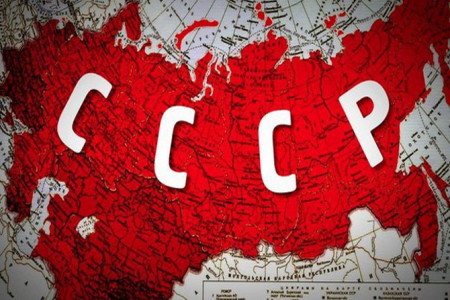
USSR map
- The transition of part of the state under the leadership of another republic. In this case, a clear example is the situation with the separation of the Autonomous Republic of Crimea from Ukraine and the transition of the island to the Russian Federation. Persons who wished to become citizens of Russia remained to live in the territory of Crimea, thereby being subject to the option of accepting citizenship of the Russian Federation. People who wished to remain residents of Ukraine left the territory of Crimea, moving to permanent residence in other regions of Ukraine. So they were subjected to positive option. That is, they retained their former status of belonging to Ukraine.
Can the option apply to minors?
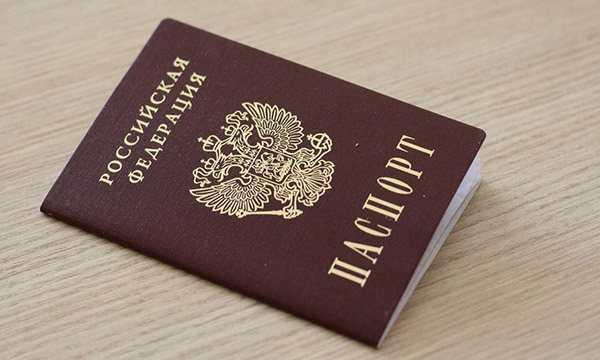
Choosing citizenship is a very important step, the consequences of which will affect throughout life, therefore, as a general rule, only adults and fully capable persons can make such a decision. Thus, all those who have not reached the age of majority are not affected and they acquire the same citizenship as their parents.
By international agreement, however, there may be an exception to this rule. As an example, the following case can be cited: in 1938, during the transition of the Sudetenland, it was provided that if during the option period the child became an adult, he could disagree with the choice of his parents and independently choose his own citizenship.
Consequences of the procedure
The consequences of the option are very significant: a person who has gone through this procedure acquires a connection with the new state, before which he has new rights and obligations. At the same time, there are often cases when a person’s choice of another citizenship does not lead to the need to get rid of the previous one, and in this case the person becomes a binational - a person with dual citizenship. If, in accordance with an international agreement, or rather due to its absence, a person cannot be a binational, then the only solution in such a situation is to renounce the old citizenship.
Implementation of the option using the example of Crimea
The latest widespread example of this method of obtaining citizenship is the option of Crimea. This happened in 2021 after the events of the so-called “Russian Spring”, as a result of which the Crimean Peninsula was included in the Russian Federation. The procedure in Crimea was unusual, since no agreement was concluded between Ukraine and Russia. Its results are still not recognized by many countries, and Ukraine insists on the illegality of its nature.
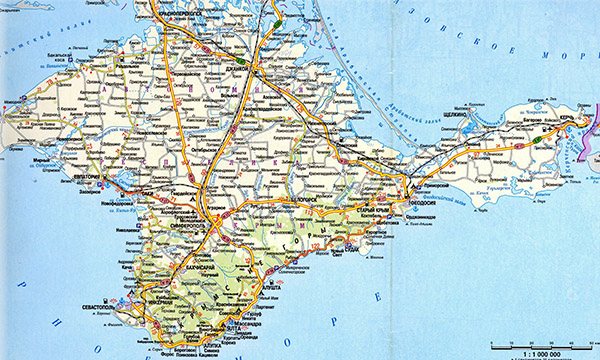
However, according to the Treaty on the Admission of Crimea to Russia, all residents of the peninsula who did not express a desire to acquire Russian citizenship had to submit a corresponding application by April 18, 2021. In all other issues of registration of civil status, the example of Crimea is classic: all those who received a passport of a citizen of the Russian Federation had the right to keep a Ukrainian document. In this regard, the Ukrainian authorities were unanimous with the Russian ones and did not cancel the Ukrainian passports of the residents of the peninsula, so the majority of Crimeans are now holders of both Russian and Ukrainian passports.
What is “transfer”, “reintegration” and how do they differ from option?
Transfer is an automatic and uncontested change in the affiliation of the population living in a territory that is included in another state and comes under its jurisdiction. Its peculiarity is the lack of choice. Citizenship of a person is determined solely by agreements between countries and most often resembles an “exchange” of population. The world practice of this method of acquiring citizenship is insignificant: one of the most famous cases is the reunification of Germany in 1990, when citizens of the GDR received German passports.
Reintegration is the restoration of citizenship after it has been lost for certain reasons. To understand how option differs from restoration of citizenship, it should be remembered that option allows you to obtain citizenship of a country for the first time, while reintegration officially renews the lost connection between a person and the state.
Choice of citizenship (optional)
Option - the choice of citizenship in the event of a transition of territory from one state to another (Hong Kong - from Great Britain to China, countries - former republics of the USSR). General principle: if a citizen located on the territory of a given state does not declare in writing, within the prescribed period, his desire to accept the citizenship of another state, he automatically becomes a citizen of the country of residence.
Termination of citizenship:
1) Voluntary exit (renunciation of citizenship).
2) Loss of citizenship. Occurs automatically, as a result of actions incompatible with citizenship (entry into public or military service in a foreign country; marriage, if this is related to citizenship, residence for a certain period in another country, transition to another citizenship).
3) Deprivation of citizenship (a coercive measure of the state applied to naturalized citizens).
Persons deprived of citizenship are subject to expulsion from the country (expatriation).
8. Foreigners regime. Asylum, expatriation and extradition.
The right of asylum, the provision by the state of the right of safe residence on its territory to persons who are persecuted in their homeland or in other countries for political, scientific, religious views and activities. P.u. known since ancient times. It existed in 3 forms: territorial (providing protection to the persecuted on the territory of another country); religious (sheltering the persecuted in places of religious worship - temples, chapels, at roadside crosses, etc.); diplomatic (providing patronage in the buildings of embassies and consulates).
Expatriation (from ex... and Latin patria - homeland), a term meaning abandonment of the homeland (emigration), deportation abroad, voluntary renunciation of citizenship, deprivation of citizenship. The conditions and consequences of these acts are determined by the national laws of individual states (on citizenship, etc.) and international treaties. The term "E." has no clear legal content and is used less and less often.
Extradition is the transfer by one state to another of a person accused of committing a crime (to bring him to justice) or convicted (to serve a sentence). International law has developed some general conditions for extradition. Only persons who have committed a criminal offense or a crime against humanity are subject to extradition; a person can be extradited only if the act he committed is recognized as a crime in the state from which his extradition is demanded; persons persecuted for political reasons are not subject to extradition; they enjoy the right of political asylum. Extradition is mandatory only if an appropriate agreement has been concluded between the state requesting it and the state to which the request is made. Own citizens, as a rule, are not subject to extradition. These general norms of international law correspond to the provisions of Articles 61 and 63 of the Constitution of the Russian Federation. According to Part 2 of Article 63, the Russian Federation does not allow the extradition to other states of persons persecuted for political beliefs, as well as for actions (or inactions) that are not recognized as a crime in the Russian Federation.
9. Personal and political rights and freedoms. Criminal legal and procedural guarantees for the implementation of rights and freedoms
Personal rights and freedoms are ordinary, natural, inalienable individual rights of a constitutional nature. They apply not only to citizens of the state, but also to all people living on its territory. Personal rights are, as it were, derived from the right to life, which every person has from birth. The fight against violation of personal rights is the scope of criminal and administrative law.
Personal dignity : the right to respect and the duty to respect others, it is achieved by the development of the individual in the awareness of his freedom, equality and security.

Right to Life : An inalienable human right meaning that no one can be arbitrarily deprived of life.
The right to personal integrity stems from the recognition of a person as free. No one has the right to force or threaten a person to take any action, subject him to torture, search, or harm his health.
Privacy : a constitutional guarantee to protect those aspects of a person's private life that he does not wish to make known to others. Based on the desire of people to have their own world of intimate and business interests, hidden from prying eyes.
Freedom of conscience and religion : presupposes the right of a person to believe in the God of any religion he freely chooses or to be an atheist. A secular state - the church is separated from the state and schools, freedom of religion is guaranteed.
Freedom of thought and speech : refers to both personal and political freedoms.
Other ways to acquire citizenship
Let's say a little about other methods of obtaining citizenship, which are indicated in Art. 11 of the Federal Law "":
- Birth from Russian citizens. If both parents have Russian passports, then the child will be associated with Russia, regardless of the place where he is born. If one of the parents has a Russian passport and the other is a foreigner, then the parents, as a rule, by mutual agreement, choose the child’s citizenship.
- Birth on the territory of Russia. Most Russians receive Russian citizenship automatically precisely on the basis that they were born and live on the territory of the Russian Federation. In addition, this practice is widespread in most countries of the world, and it is actively used by migrants, who often come to the Russian Federation with the aim of having a child in order to ensure that in the future they receive a Russian passport.
- Restoration of citizenship. Applies to those who already had a Russian passport, but for some reason the connection with the state was terminated.
- Acceptance of a foreigner into Russian citizenship. Occurs after the person has fulfilled the legal requirements to receive it. In addition, this method can be used as a basis for acquiring citizenship when state borders change. Thus, in Russia there is a simplified procedure for granting citizenship to those who were born in the republics of the former USSR and have not changed their Soviet passport.
Details can be found in the article: “Grounds for obtaining citizenship.”
Order of occurrence
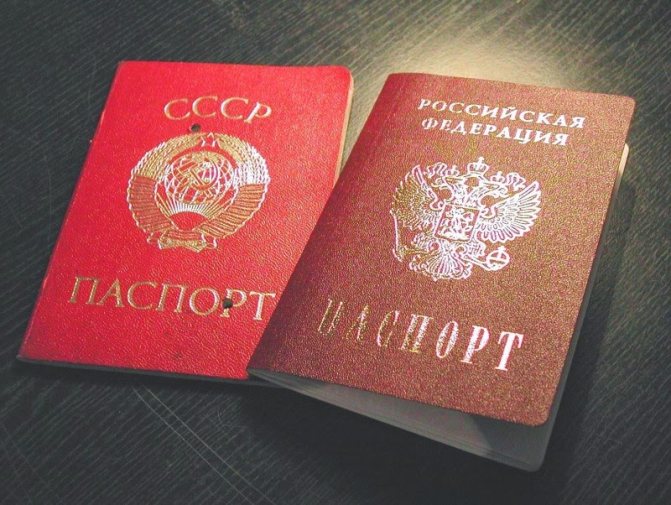
Thus, citizens can choose for themselves which state they will belong to. A decision made in favor of a foreign country will allow you to change your passport immediately after moving to a permanent place of residence in that country. The procedure is carried out as a mutual resettlement of peoples based on nationality.
When changes to the state border occur, a person has a choice in the following cases:
- separation of a new state from an existing one;
- the collapse of a single country into several;
- the transfer of any subjects of one country to the subordination of another on the basis of international principles and agreements.
In this situation, a person must make a choice with which of the parties he maintains a stable connection in the form of citizenship. While maintaining the original status, the person is forced to change his place of residence by moving to the territory of the selected country.
